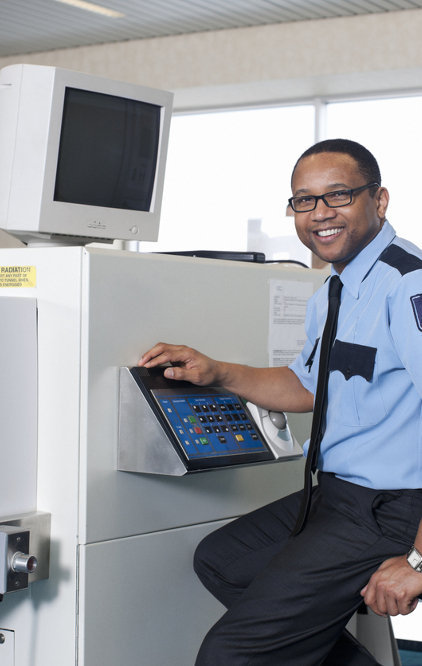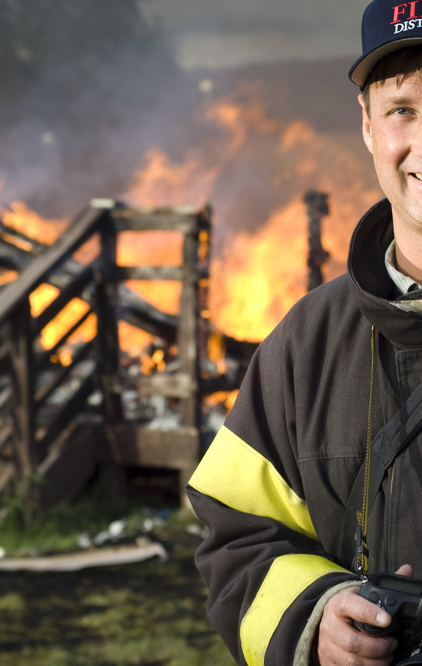An education in Criminal Justice can lead to a wide variety of public service careers. Criminal justice courses provide valuable knowledge in working effectively in corrections, probation, government and private security settings. Need to take a Caruth Police Institute at Meadows Mental Health Policy Institute leadership course? Register today! If you are a traditional student and need guidance, reach out to your Success Coach who will guide you along.
Criminal Justice at a Glance
2 months-1 year to complete1
$1,782-$4,455 tuition2
- Brookhaven
- Cedar Valley
- Eastfield
- Mountain View
- Online3
2 years to complete1
$5,940 tuition2
- Cedar Valley
- Eastfield
- Mountain View
- Online3
What Can I Study?
I Want to Go to Work
Dallas College offers fast, flexible credentials designed with local employers to help you quickly start or advance your career.
-
Workforce Certificates
- Basic Telecommunication Certification $- 2 months
- CEU Basic Peace Officer $- 1 year
- CEU Basic Police Recruit Training $- 1 year
-
Credit Certificates
- Basic Criminal Justice Studies Certificate $1,782 8 months
- Criminal Justice Management Certificate (30 Hours) $2,970 1 year
- Crisis Intervention Certificate $4,455 1 year
- Digital Forensics and Private Investigation Certificate $1,782 4 months
- Forensic Science Technician Certificate $3,960 1 year
Can I Get a Job?
Dallas College offers a variety of certificates and degrees to help you gain the skills you need to start working right away.
- These credentials are often considered Career and Technical Education (CTE).
- These credentials are established with the assistance and cooperation of representatives from local business, to meet local and regional employment needs.
- Higher level certificates and degrees will typically lead to a higher salary in the workforce.
- Workforce (CE) Certificates can often be completed faster than traditional credit certificates but typically do not offer college credit.
- Level 1, Level 2, Enhanced Skills certificates and others, offer college credit and are often stackable to help you build skills as you work towards an Associate Degree.
- Workforce credentials may give you college credit at Dallas College, but they may not transfer to other colleges or universities.
If you're unsure if this is the right path for you, you can talk to a Pathway Specialist for advice.
Pathway Specialist
- 972-669-6400
- PathwaySuccess@DallasCollege.edu
I Want to Transfer
Students planning to transfer to a four-year college or university should consider the Core Curriculum, Transfer Pathways, or degrees like the Associate of Arts or Associate of Science, which are designed to be widely accepted at other institutions.
-
Associate Degrees (for Transfer)
Can I Transfer?
Our Associate of Applied Science degrees and certificates may not fully transfer to a four year college or university.
- If your goal is to transfer, you may want to explore our Core Corriculum and Transfer Pathways.
- You may also want to explore a transfer degree, like an Associate of Arts or Associate of Science.
- The classes you take will count towards a bachelor's degree and are designed to be accepted by any public college or university in Texas.
If you're not sure if this is the right choice for you, you can talk to a Pathway Specialist for guidance.
Pathway Specialist
- 972-669-6400
- PathwaySuccess@DallasCollege.edu
What Can I Earn? Will There Be Plenty of Jobs?
Study Criminal Justice and learn from instructors with real-world experience about how to deal with criminal behavior. Check out a few of the incredible career opportunities you’ll be ready for. Your future starts here!

Customs and Border Protection Officers
$44/hr
Median Salary
1563
Job Openings
+10%
Projected Outlook
Top Skills:
- Active Listening
- Speaking
- Critical Thinking
- Reading Comprehension
- Social Perceptiveness
- Writing
- Monitoring
- Judgment and Decision Making
- Coordination
- Active Learning

Detectives and Criminal Investigators
$41/hr
Median Salary
167
Job Openings
+7%
Projected Outlook
Top Skills:
- Active Listening
- Speaking
- Critical Thinking
- Reading Comprehension
- Social Perceptiveness
- Complex Problem Solving
- Judgment and Decision Making
- Active Learning
- Coordination
- Service Orientation

Fire Inspectors and Investigators
$45/hr
Median Salary
31
Job Openings
+11%
Projected Outlook
Top Skills:
- Active Listening
- Speaking
- Critical Thinking
- Writing
- Reading Comprehension
- Social Perceptiveness
- Service Orientation
- Monitoring
- Persuasion
- Instructing

Supervisors of Correctional Officers
$38/hr
Median Salary
40
Job Openings
+5%
Projected Outlook
Top Skills:
- Monitoring
- Active Listening
- Coordination
- Social Perceptiveness
- Critical Thinking
- Speaking
- Reading Comprehension
- Management of Personnel Resources
- Persuasion
- Writing
All jobs data gathered for Dallas/Fort Worth. Source: Dallas College Labor Market Intelligence and Lightcast4.
“Going back to school with work and a family isn’t easy, but it’s attainable. There were a few times when I wanted to give up, but then I’d get encouragement and keep going. You’re going to have obstacles but you have to fight for your goals.” Read Lt. Kathy Mack's story.

Dallas College Police Academy
00:00:04
Clear your weapon.
00:00:07
He's pulling away.
00:00:08
Get on the ground.
00:00:09
We're not Superman.
00:00:10
We don't have a Batman utility belt.
00:00:12
It's all knowledge.
00:00:13
Key to it is your training, whether shooting,
00:00:16
whether it's hands-on, whether it's delivering that baby.
00:00:18
We always will revert back to our training.
00:00:20
We're gonna clear the nose and mouth of any mucus.
00:00:23
Once you choose law enforcement,
00:00:25
you give up the right to be unfit.
00:00:27
Your partner needs you, man.
00:00:29
Come on.
00:00:30
If you are overweight,
00:00:31
and you tell me, hey, turn around.
00:00:32
I'm gonna arrest you.
00:00:32
I'm like, do it, try me.
00:00:34
You know, but if you're a fit,
00:00:36
I may be like, oh, I don't know.
00:00:38
We teach these cadets how to preserve the crime scene,
00:00:41
how to make sure that everything is secured
00:00:43
for the integrity of the investigation.
00:00:45
Load it, load it, load it.
00:00:46
We showed them how to multitask,
00:00:48
how to work with your partner.
00:00:52
Every time you arrest a DWI driver,
00:00:53
you're saving not only our lives
00:00:55
and your life and his life, but the violator's life.
00:01:02
We don't react, we respond.
00:01:04
One and two and...
00:01:05
Reacting means you don't have a plan.
00:01:06
Responding means you do.
00:01:08
By the time you graduate this academy,
00:01:09
you're going to have a plan.
Dallas College offers three paths in Criminal Justice:
- Criminal Justice CTE Program – Earn certificates and degrees designed to prepare you for a career in law enforcement.
- Criminal Justice for Transfer Program – Complete core courses in Criminal Justice that seamlessly transfer to a four-year university.
- Law Enforcement Academy – Choose from specialized training options to begin or advance your career in law enforcement.
Dallas College is the one-stop shop for individuals interested in learning new approaches to serve the community through public safety vocations. Graduates take certification examinations at the close end of the program and secure required licenses, enabling entrance into the various public safety vocations. The Texas Basic Correction Officer
Dallas College is authorized by the Texas Commission on Law Enforcement (TCOLE) to offer three courses: Basic Peace Officer, Basic County Corrections and Basic Telecommunicator. The Basic Peace Officer course prepares women and men for service as police recruits in the State of Texas. After completing the police academy, graduates are permitted to take the State’s licensing exam. Cadets who score above a 70 on the State exam then become licensed peace officers and are eligible for employment in the State’s 2,700 police agencies.
Cost
In addition to tuition, there is approximately $600 in extra costs for uniforms, ammunition and other fees. There are also pre-admissions expenses students need to absorb. The state requires a pre-admittance Medical Evaluation ($135) and Psychological Evaluation ($150); there’s an additional criminal history check that’s required, done through a Fingerprint ($40).
Course Schedule
Note: Basic Peace Officer courses are listed on the CE Schedule. Please search classes for CJLE. There are full-time and part-time classes available. Full-time classes generally run for 21 weeks, Mondays through Fridays, 8 a.m.-5 p.m., with some weekends. Part-time evening classes run for 42 weeks, Mondays through Fridays, 6:30-10:30 p.m., with occasional weekend classes. Part-time morning classes run for 42 weeks, Mondays through Fridays, 8 a.m.-noon, with occasional weekend classes.
Qualifications for Entrance
The Texas Occupations Code sets legal minimum qualifications for peace officers in the state of Texas. The Texas Commission on Law Enforcement is the regulatory agency charged with maintaining and regulating the standards set in the Occupations Code. Per the above, qualifications to be a peace officer in Texas are:
- Must be a U.S. citizen.
- Must be 21 years old (or 18 years old with 60 college hours).
- Must be a high school graduate or have a GED.
- Must pass a state criminal history and fingerprint check.
- Must not be currently charged with a crime.
- Veterans of U.S. military services must not have a dishonorable or bad conduct discharge.
- Must not be restricted from owning or possessing a weapon or ammunition.
- Must have a valid Texas driver's license (out-of-state applicants must comply with Texas law.)
- Must clear a background investigation (review of personal history statement).
- Must pass a fingerprint check.
- Must pass a physical and drug screen examination.
- Must pass a psychological examination (includes personal history statement).
Required Documents
The Law Enforcement Academy will need the following documents. In some cases, the original or certified copy must be presented.
- Birth certificate or naturalization certificate (For U.S. citizenship, an original or certified copy must be presented; a copy will be made by the academy staff.)
- Valid Texas driver's license (Applicants with an out-of-state driver's license must be prepared to comply with Texas law regarding obtaining a valid Texas driver's license.)
- Driver's History Statement (Applicants will follow directions given by the academy to obtain the correct form.)
- High school diploma or GED (Academy staff will copy the original or certified copy.)
- DD Form 214 (for military veterans only).
- Personal History Statement (Forms will be provided. You will need it filled out before the academy schedules an appointment for your initial interview, as this statement must be completed and presented at your interview.)
Additional Requirements
In addition to meeting the qualification standards established by the Texas Commission on Law Enforcement, every person applying to the Dallas College Law Enforcement Academy must comply with these additional requirements.
- Pass a TSI exam.
- The TSI exam assesses reading comprehension, essay and sentence skills at the college freshman level. It is required because Law Enforcement Academy cadets must read Texas law and be able to fulfill the writing needs of crime and arrest reporting.
- If you have already taken the exam or a comparable exam, you will not be required to retake it (academy staff will determine this with you in your initial interview.) Military veterans with two or more years of active duty experience are exempt from the TSI exam requirement.
- Applicants can obtain a waiver to take the first exam attempt for free. Second or third attempts are at the cost of the applicant. If you have not passed one or both portions of the exam by the third attempt, you will be required to take remedial courses prior to attending the academy.
- The TSI exam assesses reading comprehension, essay and sentence skills at the college freshman level. It is required because Law Enforcement Academy cadets must read Texas law and be able to fulfill the writing needs of crime and arrest reporting.
- Have a bacterial meningitis vaccination. This requirement will be reviewed with you during the initial interview. Exceptions are only made if:
- You have received the bacterial meningitis vaccination within the last five years.
- You are 22 years old or older.
Questions? Contact us at 4Justice@DallasCollege.edu, or call 972-391-1084.
How to Apply
The journey of a lifetime begins with the first step. We realize there are a few steps here and it can be a bit confusing. The academy’s staff is here to assist you with every step in the process, or with any questions you may have before taking those steps. Noted below is a general outline and description of the step-by-step procedure for enrolling.
- Email the academy at 4Justice@DallasCollege.edu or call the academy at 972-391-1084 to schedule an interview and receive the paperwork via email. Paperwork will be sent to you.
- Complete the Personal History Statement you’ll have received.
- Expect to hear from the academy about an applicant interview.
- Applicant must bring their completed personal history statement to the interview.
- Applicant is interviewed by an academy staff member, reviewing their qualifications, academy requirements and exceptions/exemptions, if applicable.
- Applicants will be directed to obtain a student ID Number (if they do not already have one).
- Applicants will be directed to take and complete the reading and writing portions of the TSI (if they haven't yet done so), however:
- Official transcripts from an accredited college or university showing valid TSI scores, or showing a college-level English course with a "C" grade or above suffice for an exemption.
- A transcript showing an Associates, Bachelor's, Masters', etc. from an accredited college or university is also an exemption.
- Applicants must meet the Meningitis Vaccine requirement for the college (if applicable).
- Applicants must satisfy preliminary qualifications — and complete the checklist provided via email when they scheduled their appointment, which includes:
- Proof of education (high school diploma, GED or higher).
- A DD-214 with at least 24 months of (full-time) active-duty service AND an Honorable discharge is also accepted.
- DD-214 (if applicable) — cannot have been a Dishonorable Discharge.
- Valid Texas driver's license (applicants with an out-of-state license must obtain a Texas driver's license to enter into a Texas-based Law Enforcement Academy.)
- DPS driver history statement (applicant must follow instruction on their checklist.)
- Proof of citizenship (must be two forms, which include birth certificate, Social Security card or passport –or– naturalization papers)
- "FAST" form fingerprint/criminal history and TCOLE qualification statement (applicant must follow directions provided during their interview.)
- Physical Exam, which also includes a 5-panel (or higher) drug screen. Both the L-2 and the drug screen results must be presented to meet this criteria (applicant must follow directions provided during their interview.)
- Psychological Exam (applicant must follow directions provided during their interview).
- Registration must be done through the academy. Registration is not available online or through the college registrar's office, as those two methods do not prove the applicant has met all the state requirements for registration in a law enforcement academy.
Find Out More About Criminal Justice
Sign up to receive additional information about Criminal Justice or call 972-669-6400.
School of Law and Public Service
- 972-860-8912
- asklps@dallascollege.edu
Dallas College
- 972-669-6400
- Text College to 214-978-6457
- StudentHelp@DallasCollege.edu
1Length of time is based on catalog degree plans. Prerequisites may be required, which are not included in this estimate. For most programs, full-time student status is assumed, a minimum of 12 credit hours per semester.
2Cost is based on tuition rates for program hours for Dallas County residents. The price of most required learning materials (books, software, supplies, etc.) is included with the price of tuition. Visit our Paying for College site to learn more about cost, financial aid, scholarships and more.
3Each location offers a unique combination of certificate and degree options. Not all degree and certificate offerings are available for admission/start at all campuses every semester.
4A portion of Lightcast’s data comes from O*NET Online by the U.S. Department of Labor, Employment and Training Administration (USDOL/ETA). Used under the CC BY 4.0 license. O*NET® is a trademark of USDOL/ETA. Lightcast has modified all or some of this information. USDOL/ETA has not approved, endorsed, or tested these modifications.
HB1508 Notice
This program may lead to an occupational license for which a prior criminal history may make a student ineligible.
For more information, please visit DallasCollege.edu/hb1508.





